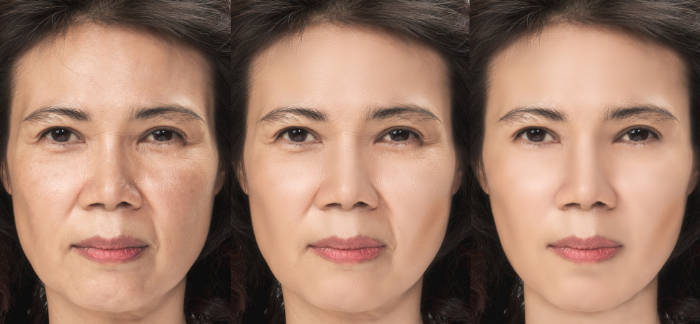Source:Thailand Medical News Sep 10, 2019 6 years, 3 months, 4 days, 29 minutes ago
Researchers from Stanford University and Stanford Medical Centre in California along with the support of various Institutions in the US and Canada, have found supporting evidence that suggests recombinant human growth hormone (rhGH) can reverse epigenetic aging in humans based on a study that was recently conducted.

Aging is a normal process linked to specific patterns and changes in the epigenome, particularly DNA methylation. Epigenetic aging in simple terms refers to external factors that influence these processes including dietary habits, pollution, external chemicals, stress, diseases or exposure to certain viruses and bacteria, etc.
The findings which were published in the journal
Aging Cell, describes what the team in their efforts to learn more about the impact of rhGH on the thymus had found.
The team said that their interest in the impact of rhGH on the thymus began when they came across a report describing previous research dating as far back as 1986, that showed injecting animal models with rhGH boosted their immune system. One of the team members then, actually tested the idea on himself back in the 1990s, and found that that it appeared to rejuvenate his thymus, which boosted his immune system.
The thymus gland is located in the chest area, and it responsible for converts white blood cells to to T cells and therefore plays an important role in immune response. However, as humans age, fatty deposits develop in the thymus, along with reductions in human growth hormone, resulting in weakened immune responses. In this new effort, the researchers wanted to get a better idea of what happens to the thymus and the immune system if people are given rhGH.
The study consisted of giving each of the volunteers in the trial programme, the growth hormone DHEA. Each participant was also given two drugs to ward off diabetes, since DHEA had been found to trigger the disease.
The participants were monitored over the course of twelve months. At the end of the twelve months, the researchers found that seven of the nine participants had lost fat in their thymuses and that healthy tissue had regrown to replace it. The researchers also conducted epigenetic marker (methylation) testing on the volunteers, as well. They report that all 10 of the volunteers experienced reverse epigenetic aging, on average, they grew biologically younger by two and a half years.
The researchers are planning more detailed studies to truly understand the effects of human growth hormone on aging and to also develop more effective protocols to extract better benefits from it to help reverse the aging process.
Reference: Gregory M. Fahy et al. Reversal of epigenetic aging and immunosenescent trends in humans, Aging Cell (2019). DOI: 10.1111/acel.13028
Note from Thailand Medical News : Do not attempt to try to self-medicate or self-administer with fake and dangerous products bought online or even from any Aesthetic Clinics offering recombinanant human growth hormone . Always only consult a speciliazed endocrinologist from a private or government hospital. If you come across any local online sites selling
such products or clinics offerring such treatments, kindly report then to the Thai FDA, Thai MOPH or any local Thai police. You could be saving a life.
